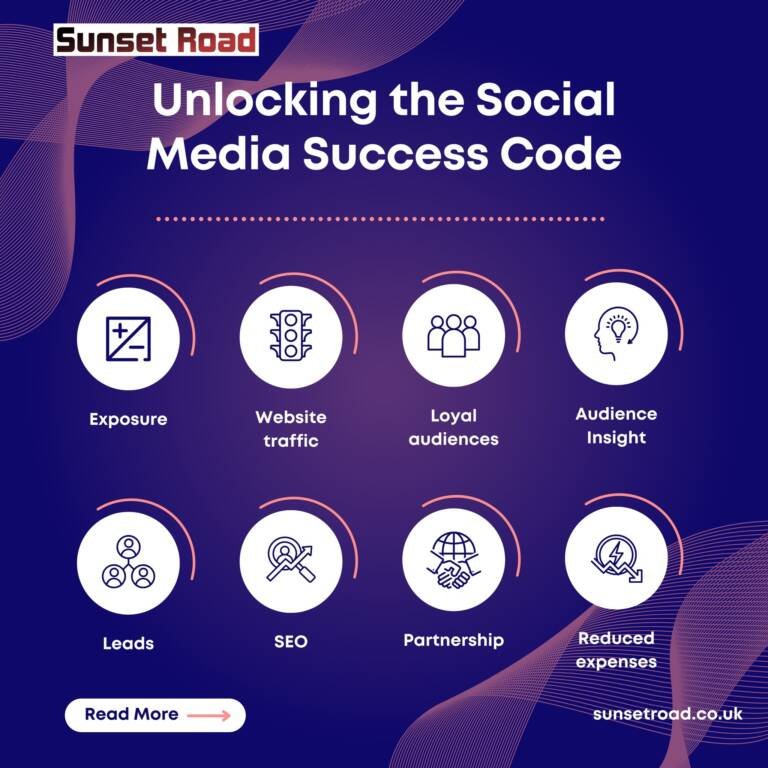Social Media Marketing Strategies UK Businesses Must Adopt in 2024

Social media has become an indispensable tool for businesses across the globe, and UK businesses are no exception. In 2024, with increasing competition and ever-evolving digital platforms, having a robust social media marketing strategy will be crucial for companies to succeed. The following strategies are designed to help UK businesses effectively navigate the complex and dynamic social media landscape.
The Role of Social Media in UK Business
In the UK, businesses, whether large or small, have found social media to be a powerful avenue for brand building, customer engagement, and driving conversions. Platforms like Facebook, Instagram, TikTok, LinkedIn, and YouTube offer direct communication channels with customers, making it possible for brands to share their stories, highlight their products, and receive real-time feedback. However, social media in 2024 is more than just posting updates. It’s about creating meaningful, relevant, and consistent engagement that resonates with the target audience. Social media also provides access to detailed analytics that help businesses fine-tune their approach and connect with their market on a deeper level.
Understanding Your Audience
The cornerstone of an effective social media strategy is understanding your audience. Knowing who they are, what platforms they use, and how they engage with content will help craft messages that resonate. In 2024, personalization will play a critical role. UK consumers are seeking personalized experiences, and businesses need to cater to that by curating content that speaks directly to individual interests, challenges, and aspirations. For instance, if your target demographic includes young professionals, platforms like LinkedIn and Instagram might be the most effective for outreach. For a clothing brand, Instagram and TikTok are essential platforms, where short, visually appealing content thrives. Researching audience preferences, analyzing customer feedback, and studying competitors’ strategies can give businesses a competitive edge in tailoring their social media efforts.
Video Content and Live Streaming
In 2024, video content continues to dominate social media, and UK businesses must embrace this trend. Platforms like TikTok and YouTube are seeing exponential growth due to video’s ability to capture attention quickly and convey information in an engaging format. Facebook, Instagram, and LinkedIn have also prioritized video content, offering various formats, from stories to live streams. Live streaming has grown in popularity as a real-time way to engage with customers. UK businesses can leverage live streaming to host Q&A sessions, product launches, or behind-the-scenes content that gives audiences a closer look at their brand. For example, a UK-based fashion retailer might live stream a fashion show or a new product release. This creates a sense of exclusivity, allowing customers to feel more connected to the brand.
User-Generated Content (UGC)
User-generated content (UGC) has become one of the most authentic ways to engage audiences. In 2024, UK businesses should focus on encouraging their customers to create content that reflects their experiences with products or services. When customers post photos, reviews, or videos about a brand, it serves as a form of digital word-of-mouth marketing, which can significantly boost credibility and trust. For example, Gymshark, a fitness apparel brand based in the UK, has excelled by utilizing UGC, encouraging fitness enthusiasts to share workout videos and progress pictures while wearing their products. This not only builds brand loyalty but also expands Gymshark’s reach through its customers’ networks.
Embrace Short-Form Content
In an age of declining attention spans, short-form content reigns supreme. TikTok’s rapid rise has made short, snappy videos essential for capturing audience interest, and Instagram’s Reels feature capitalizes on the same trend. For UK businesses, mastering short-form content in 2024 is non-negotiable. Brands can use short-form videos to share quick tips, demonstrate products, or showcase behind-the-scenes moments. For example, a UK-based cosmetics company might post a 30-second video tutorial on how to use one of their beauty products, which provides value to the audience while also promoting the product in a digestible way.
Leveraging Influencer Marketing
Influencer marketing has evolved, and in 2024, it will remain one of the most effective ways for UK businesses to reach new audiences. Rather than relying on traditional celebrity endorsements, brands are now turning to micro-influencers—individuals with smaller but highly engaged followings. Working with influencers who align with your brand’s values can result in authentic collaborations that appeal to target audiences. For instance, a sustainable fashion brand in the UK might collaborate with eco-conscious influencers who actively advocate for green living. This kind of partnership not only boosts visibility but also strengthens the brand’s positioning as environmentally responsible. Influencers on platforms like Instagram, YouTube, and TikTok can provide direct access to niche markets that might be difficult to reach through traditional advertising methods. Furthermore, influencer marketing offers brands the opportunity to engage with younger demographics, which are often harder to capture through conventional marketing tactics.
Paid Advertising and Targeted Campaigns
Organic reach on social media is becoming increasingly challenging, with algorithms continuously evolving to prioritize paid content. As such, UK businesses must invest in paid social media advertising to ensure their messages reach the intended audience. Platforms like Facebook, Instagram, and LinkedIn offer advanced targeting options that allow businesses to reach specific demographics based on interests, behaviors, and location. In 2024, it’s crucial for UK businesses to create hyper-targeted campaigns that speak directly to their audience’s needs and preferences. For example, a local restaurant in London could run a targeted ad campaign during lunchtime, offering discounts to users within a 10-mile radius. This not only increases foot traffic but ensures the ads are seen by those most likely to act. Businesses must also track the performance of their paid campaigns, using analytics tools to measure key metrics such as click-through rates (CTR), return on ad spend (ROAS), and engagement levels. By analyzing this data, businesses can refine their strategies, optimize their budgets, and increase ROI.
Authenticity and Corporate Responsibility
UK consumers, especially younger audiences, increasingly prefer brands that demonstrate social responsibility. In 2024, businesses will need to align their social media presence with their broader corporate values. This could mean highlighting sustainability initiatives, championing diversity and inclusion, or engaging with charitable causes. Authenticity is key here. Consumers can easily spot when a brand is simply jumping on a trend without any real commitment to the cause. UK businesses must ensure that their social media strategies reflect their values and that these values are evident in every interaction. For example, brands like Lush Cosmetics have built their reputation around social and environmental responsibility. Their social media content often highlights issues like animal testing and sustainability, which resonates with their eco-conscious audience.
Conclusion
The social media landscape in 2024 offers UK businesses exciting opportunities, but it also comes with its challenges. With the rise of video content, social commerce, influencer marketing, and an emphasis on community engagement, businesses need to adapt quickly to stay relevant. By focusing on building genuine connections with their audience, embracing new technologies, and creating personalized experiences, UK businesses can thrive in this competitive space. Social media marketing is not just about visibility—it’s about creating lasting relationships with your audience. As the digital world continues to evolve, the businesses that succeed will be those that can effectively harness the power of social media to engage, inspire, and convert their followers into loyal customers.











